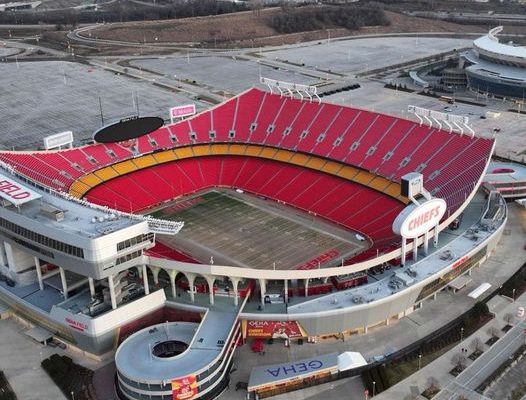In the ongoing saga of potential stadium relocations for Kansas City’s Chiefs and Royals, the question arises: does the precise location of these teams matter so long as they remain within the Kansas City metro? This debate has been rekindled following recent legislative efforts in Kansas aimed at enticing both franchises to cross the state line from Missouri.
On a recent Tuesday, the Kansas Legislature announced a proposal, still shrouded in detail, aimed at relocating the Chiefs and possibly the Royals from their longstanding seats at the Truman Sports Complex in Missouri to a new, yet unspecified, location in Kansas. The specifics, including cost and site, are pending, leaving fans and taxpayers in a cloud of uncertainty as negotiations continue.
As someone who has resided on both sides of the Kansas-Missouri border, I’ve found myself indifferent to the political and geographical battle brewing over the teams’ potential moves. Whether the Chiefs find a new home near the Legends shopping district in Kansas City, Kansas, or if the Royals venture into a downtown area in Missouri, the primary concern for fans should be the quality of the experiences these locations can offer, not the state in which they’re located.
Critics and proponents alike have voiced concerns over the financial implications and the urban development impact of such monumental moves. Yet, it’s crucial to recognize these relocations within the broader context of sports franchises seeking advantageous deals from cities and states. The NFL and other leagues have seen teams like the Las Vegas Raiders and the Dallas Cowboys move to cities willing to provide lucrative stadium deals regardless of their traditional home bases.
The potential split between the two states could theoretically provide each team with more resources for their respective stadium projects. The Chiefs could leverage this situation for a state-of-the-art facility, possibly including a dome to host major events like Super Bowls, while the Royals could revisit plans for a more cohesive downtown Kansas City, Missouri, presence.
Though the lure of brand-new stadiums is strong, the history of publicly funded sports venues offers a cautionary tale of underwhelming economic returns for the taxpayer investment. Thus, as this inter-state drama unfolds, it’s the well-being and preferences of the local fans and communities that should take precedence.
Regardless of where the Chiefs and Royals ultimately play, they will remain Kansas City’s teams. The debate should not distract from ensuring both teams have the best possible future, on and off the field, for their loyal fans.



